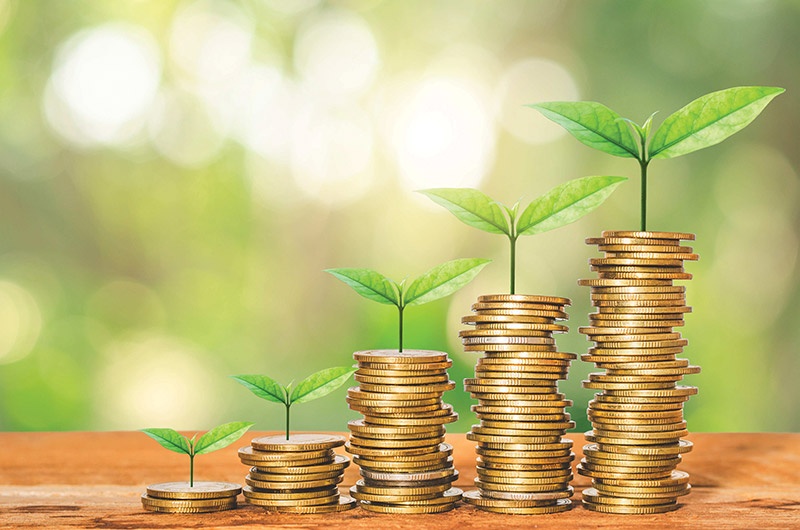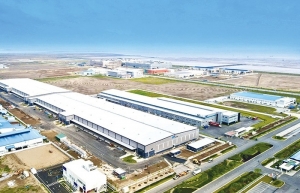Top institutions seek green credit answers
At the end of July, the government approved tasks and solutions to work out commitments of the COP26 climate summit and a decision on adopting the National Climate Change Strategy to 2050, demonstrating the government’s eagerness towards greenhouse gas mitigation for sustainable development. The decision clarifies specific targets on emissions, developing natural ecosystems, and renewable energy sources, as well as action plans to adapt to climate change.
 |
| Top institutions seek green credit answers, Photo: Shutterstock |
Michele Wee, current chairperson of the Vietnam Business Forum’s Banking Working Group, and also CEO of Standard Chartered Vietnam, said that finance plays a crucial role in helping Vietnam implement its green and sustainable growth goals and that government support should be strengthened.
“Approaching new financial support to adapt to climate change and integrating problems relating to environment and climate into business’ financial strategy is a major challenge. Thus, the government should create a mechanism to encourage the participation of the domestic private sector and financial sources from the public and private sectors,” Wee said at last week’s conference on the topic, organised by the State Bank of Vietnam (SBV) and the Banking Working Group in Hanoi.
According to statistics from the Ministry of Planning and Investment, Vietnam needs to mobilise $360 billion for implementing its green and sustainable development goals by 2030, half of which will come from the private sector. Besides that, GDP losses could reach up to 14 per cent by 2050, putting huge burdens on both public and private finances.
Being aware of the importance of financing capital inflow to implement green and sustainable development goals, the SBV promulgated documents guiding procedures for credit loans several years ago. Meanwhile, the SBV has reviewed information from 21 international organisations, including 14 banks and seven investment funds, and sees that the number of organisations investing in green sectors since 2020 is double the figure during 2010-2015. The SBV acknowledges there are many barriers to mobilising green finance sources, and one of the biggest barriers is the lack of national regulations about the criteria for green projects and businesses.
Elsewhere, international banks and financing institutions reflect that while financing sources to support Vietnam to implement green development goals are abundant, the importance is an open mechanism and specific policies for unlocking these capital inflows.
“To promote sustainable business practices in Vietnam, it would be best to establish a set of clear and specific criteria that determines what qualifies as green business and green projects. This framework could be used as Vietnam’s green standards, which should be more or less aligned with international standards and be applicable to all sectors of the economy,” Huynh Buu Quang, Deutsche Bank chief country officer and head of Corporate Banking for Vietnam told VIR.
“Based on this, auditing/consulting firms could appraise projects and businesses to conclude whether they are going to be qualified as green or sustainable businesses/projects and could enjoy favourable treatments, policies, and financing terms.”
Besides that, such a framework could be a guide for all businesses that have plans to switch to green or sustainable production models, Quang added. “Ministries and relevant authorities would need to work together to build these criteria.”
When helping local businesses raise green funding from the capital market, Deutsche Bank often invites international consultant firms to help the bank’s clients meet green criteria based on international standards.
“To encourage more Vietnamese businesses operating in brown industries to switch to green or circular economy models, it would be helpful if Vietnam had similar favourable policies as have been put in place to attract foreign investment into the country. Once businesses have decided to transition to green and sustainable business models, most banks or investors will be more willing to invest or provide financing to support this kind of transition,” Quang said.
Transiting traditional production methods to a green model is also an effective solution to mitigate carbon emissions – a process that needs huge capital and a suitable mechanism to resolve. One example is a change from coal-fired power generation to renewable energy.
At COP26 last year, Vietnam pledged to reach net-zero carbon emissions by 2050. The government agreed to phase out coal-fired power generation in the 2040s or sooner.
In Vietnam’s draft Power Development Plan VIII for the 2021-2030 period with a vision towards 2045, the total generation capacity of Vietnam by 2045 will be 333GW, of which 42 per cent will consist of solar and wind energy. The total needed investment is $127.5 billion, according to HSBC.
 | Vietnam to improve institutions to attract foreign investment In view of the important contributions of investment capital to the local economy, Vietnam needs immediate solutions to attract more FDI and strengthen its sources, according to experts. |
 | Green industrial complexes at top of foreign-led wishlist Creating favourable mechanisms for developing integrated eco-industrial parks is expected to make these investments more appealing to large foreign groups. |
 | Green standards top policies for fresh foreign ventures Vietnam is becoming a destination for environmentally-friendly initiatives that can contribute to the circular economy. However, improvements from various sides will be necessary in order to lure truly sustainable investment. |
What the stars mean:
★ Poor ★ ★ Promising ★★★ Good ★★★★ Very good ★★★★★ Exceptional
Related Contents
Latest News
More News
- Raised ties reaffirm strategic trust (February 20, 2026 | 14:06)
- Sustained growth can translate into income gains (February 19, 2026 | 18:55)
- The vision to maintain a stable monetary policy (February 19, 2026 | 08:50)
- Banking sector faces data governance hurdles in AI transition (February 19, 2026 | 08:00)
- AI leading to shift in banking roles (February 18, 2026 | 19:54)
- Digital banking enters season of transformation (February 16, 2026 | 09:00)
- IFC to grant $150 million loan package for VPBank (February 13, 2026 | 09:00)
- Nam A Bank forms position as strategic member at VIFC through three key partnerships (February 12, 2026 | 16:39)
- Banks bolster risk buffers to safeguard asset quality amid credit expansion (February 12, 2026 | 11:00)
- VNPAY and NAPAS deepen cooperation on digital payments (February 11, 2026 | 18:21)

 Tag:
Tag:



















 Mobile Version
Mobile Version